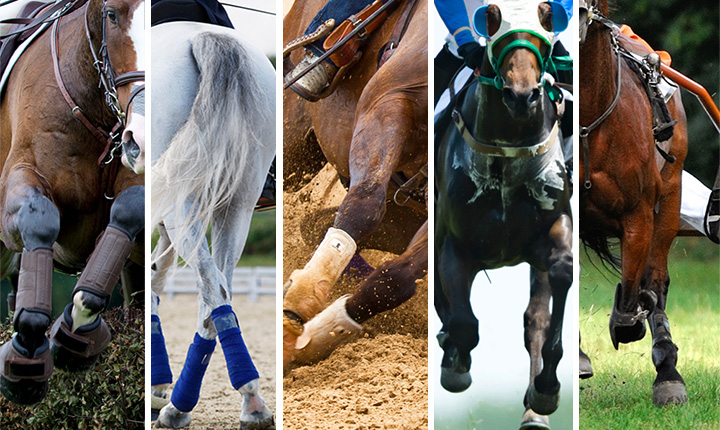2200001 - Equine Exercise Physiology
Course Description

Examine many of the important aspects of conditioning the equine athlete in various disciplines. You will nvestigate topics including base conditioning, aerobic and anaerobic exercise and recovery, monitoring of conditioning gains, and prevention of health and performance problems. Gain the practical and updated information needed to ensure a safe and effective training program through applied scientific knowledge of exercise physiology.
Understanding equine exercise physiology will help you to train a horse to a specific discipline. You will learn to physically assess a horse and design a discipline-specific training and conditioning program using evidence-based scientific research to provide the rationale for your training choices.
Currently, I am utilizing what I learned through the Equine Guelph Classes every single day. The Exercise Physiology course has allowed me to better understand and care for the racehorses I work with because of my knowledge about muscles and tissues from the class.
Learning Outcomes
Upon successful completion of this course, you should be able to:
- Examine the physiological changes in the horse during acute and chronic exercise;
- Describe the scientific rationale for suggested conditioning practices based on the horse's physiology;
- Apply exercise physiology research to inform and design and monitoring of a yearly training program for a horse;
- Investigate current welfare issues facing the equine athlete and explore potential solutions to mitigate the negative impacts on the horse's welfare;
- Identify training issues specific to the various equine disciplines and suggest appropriate prevention or actions;
- Assess the horse's health during the training process and apply the results of assessments to make optimized decisions fro the horses's welfare; and
- Discuss the advantages and disadvantages of new technology, alternate training venues, equipment, or programs.
Course Topics
- Introduction to Equine Exercise Physiology
- Movement and Muscle
- Energy Provision
- Energy Production
- The Respiratory System
- The Cardiorespiratory System
- Electrolytes and Thermoregulation
- Fatigue
- Training Adaptations
- Monitoring the Changes
- Emerging Topics and Trends
Sample Careers
- Those interested in improving the results of performance horses—including racing, endurance, roping, eventing and show horses
- Equine wellness practitioners such as equine massage therapists
Additional Requirements
- This course is intended for adult learners who are at least 18 years of age.
- There are no prerequisites for this course.
- You may take this as an individual course or choose to complete one of our equine certificates or the diploma.*
- You do not need access to a horse to participate and be successful in this course.
- You can expect to spend 6-10 hours per week to complete the course material, activities, discussions and assignments.
*If you are a certificate or diploma program student, we recommend that you complete Equine Functional Anatomy before the Equine Exercise Physiology course.
Assessment
| Assessment Item | Weight |
|---|---|
| Knowledge Quizzes | 20% |
| Focused Discussion | 20% |
| Guest Speaker Discussions | 10% |
| Applied Project (Training Plan or Research Paper) |
40% |
| Welfare Assessment | 10% |
| Total | 100% |
Please note that the course assessment is subject to change.
Sponsoring Partner
Applies Towards the Following Certificates
- Diploma in Equine Studies : Electives
- Equine Science Certificate : Electives
Technical Requirements
You are responsible for ensuring that your computer system meets the necessary system requirements. Use the browser check tool to ensure your browser settings are compatible and up to date (results will be displayed in a new browser window).
*Course details are subject to change.
View the upcoming course schedule at our Equine Studies Online program website.

